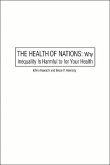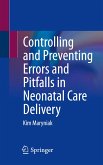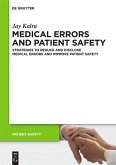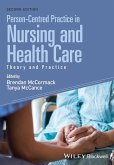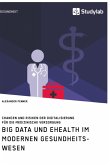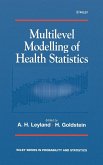The detection, reporting, measurement, and minimization of medical errors and harms is now a core requirement in clinical organizations throughout developed societies. This book focuses on this major new area in health care. It explores the nature of medical error, its incidence in different health care settings, and strategies for minimizing errors and their harmful consequences to patients. Written by leading authorities, it discusses the practical issues involved in reducing errors in health care - for the clinician, the health policy adviser, and ethical and legal health professionals.
Over the past decade, a transformation in attitudes to health care error and patient safety has taken place. Recognition, classification, monitoring and prevention of errors have become visible fields of multidisciplinary debate, empirical research and policy development, whereas 5 years ago such matters were little studied or discussed.
Errors in medicine are now of great interest to many parties - they attract the focus of lawyers, insurers and policy analysts, as well as the attention of medical educators, researchers, psychologists, professional, regulatory and defence bodies, patients and politicians. Each constituency brings different viewpoints to the issues raised by medical error, such as: error definition and reporting, error interpretation, how to identify the causes of medical error and maximise prevention, and how to reduce error associated health care harms.
Over the coming decade, the detection, reporting, measurement and minimisation of medical errors and the harms which flow from these will become part and parcel of every clinical organisation in developed societies.
Aim of this book
This volume will bring together a series of contributions by internationally recognised researchers, scientists and critical thinkers on medical errors, in order to chart the growing public and policy interest in medical fallibility and patient safety. It will be directed to a broad audience of practitioners, policy makers and researchers, and will encompass
the nature of medical fallibility and different approaches to defining error
relations between error and harm
what is known about the incidence and epidemiology of errors and harms in different health settings and
strategies to minimise the occurrence of errors and their harmful consequences
interaction with the law: culpability for error, harm and bad luck
relevance to clinical appraisal and re-accreditation
the culture and ethos of clinical practices
medical education and research.
With an international authorship, this volume will be of interest to both domestic and international clinical, health policy, medical R+D and health education readerships. Comparable collections contain material published some time ago now and do not offer the breadth of focus on error and patient safety that we propose here.
Hinweis: Dieser Artikel kann nur an eine deutsche Lieferadresse ausgeliefert werden.
Over the past decade, a transformation in attitudes to health care error and patient safety has taken place. Recognition, classification, monitoring and prevention of errors have become visible fields of multidisciplinary debate, empirical research and policy development, whereas 5 years ago such matters were little studied or discussed.
Errors in medicine are now of great interest to many parties - they attract the focus of lawyers, insurers and policy analysts, as well as the attention of medical educators, researchers, psychologists, professional, regulatory and defence bodies, patients and politicians. Each constituency brings different viewpoints to the issues raised by medical error, such as: error definition and reporting, error interpretation, how to identify the causes of medical error and maximise prevention, and how to reduce error associated health care harms.
Over the coming decade, the detection, reporting, measurement and minimisation of medical errors and the harms which flow from these will become part and parcel of every clinical organisation in developed societies.
Aim of this book
This volume will bring together a series of contributions by internationally recognised researchers, scientists and critical thinkers on medical errors, in order to chart the growing public and policy interest in medical fallibility and patient safety. It will be directed to a broad audience of practitioners, policy makers and researchers, and will encompass
the nature of medical fallibility and different approaches to defining error
relations between error and harm
what is known about the incidence and epidemiology of errors and harms in different health settings and
strategies to minimise the occurrence of errors and their harmful consequences
interaction with the law: culpability for error, harm and bad luck
relevance to clinical appraisal and re-accreditation
the culture and ethos of clinical practices
medical education and research.
With an international authorship, this volume will be of interest to both domestic and international clinical, health policy, medical R+D and health education readerships. Comparable collections contain material published some time ago now and do not offer the breadth of focus on error and patient safety that we propose here.
Hinweis: Dieser Artikel kann nur an eine deutsche Lieferadresse ausgeliefert werden.


